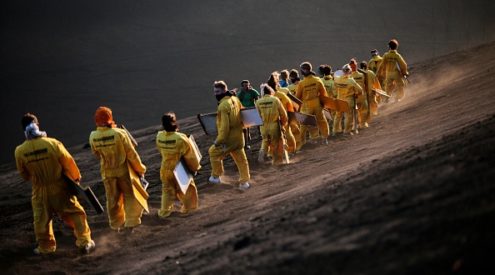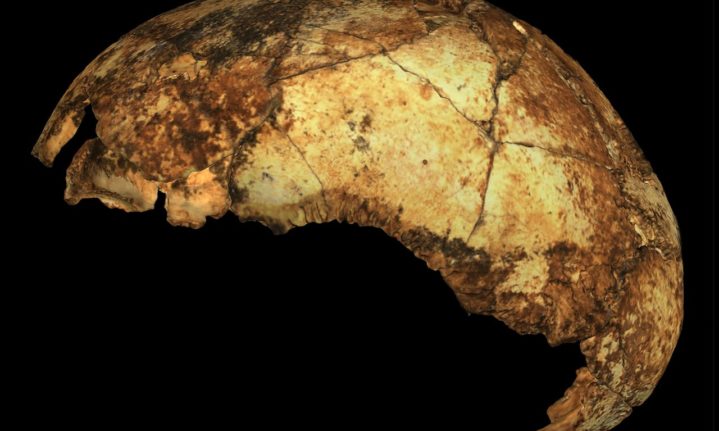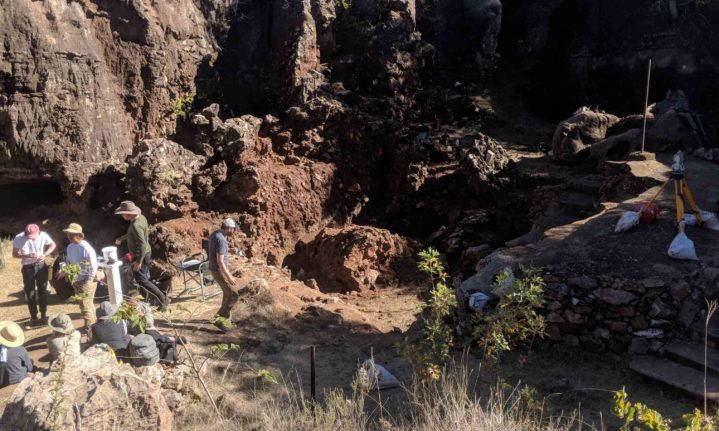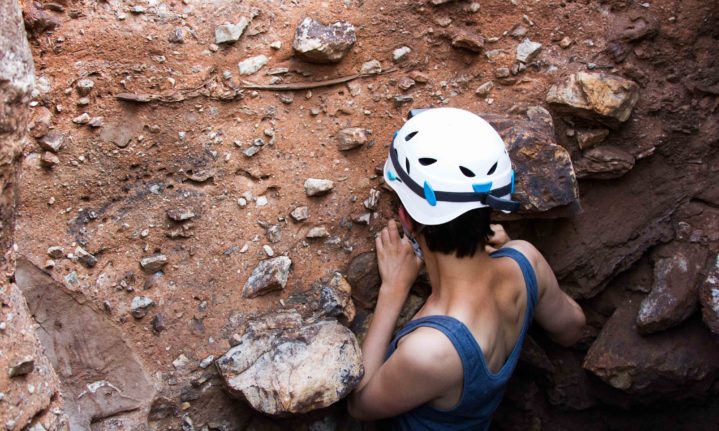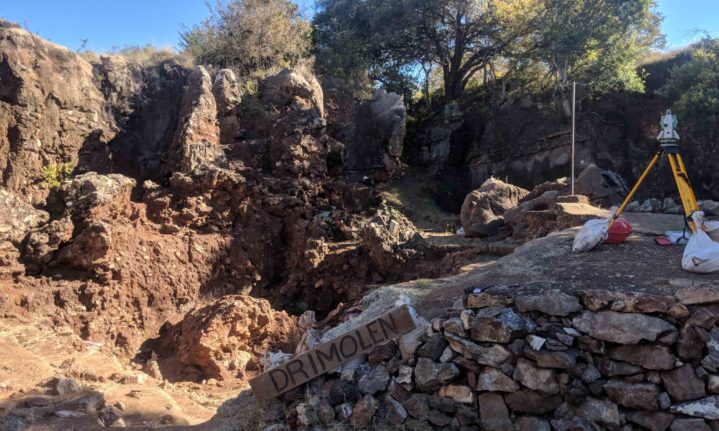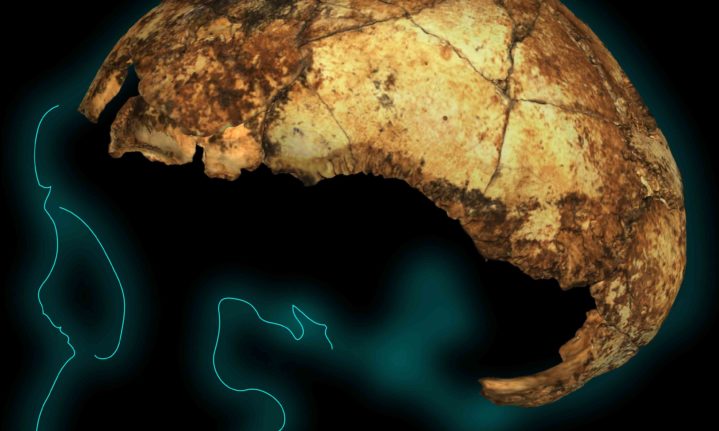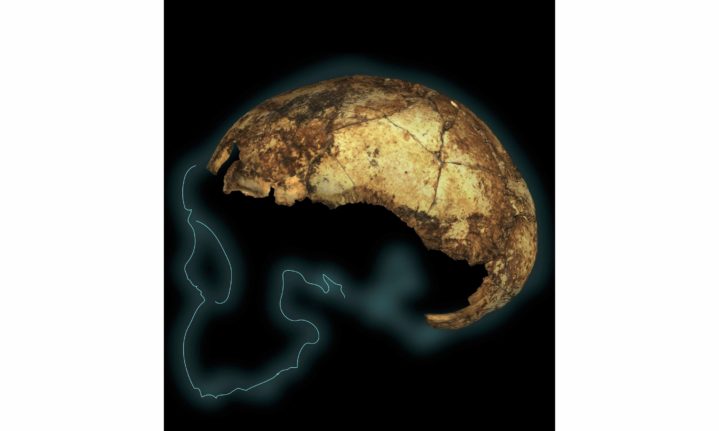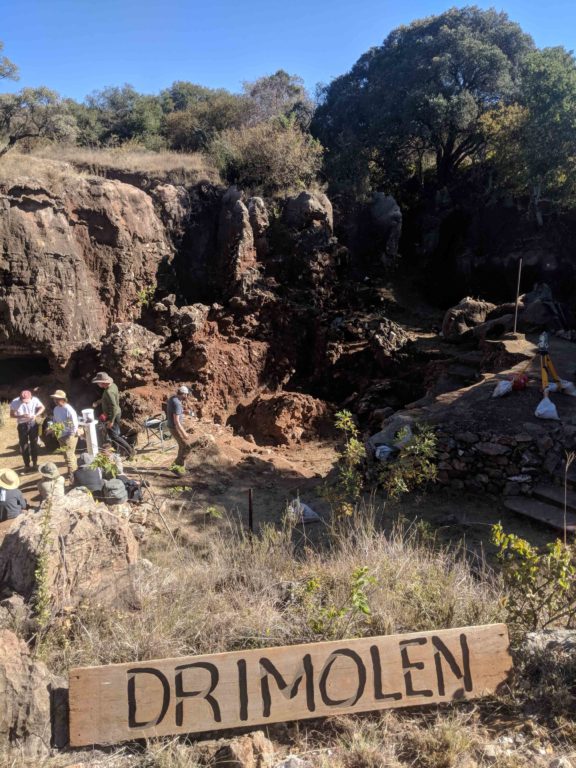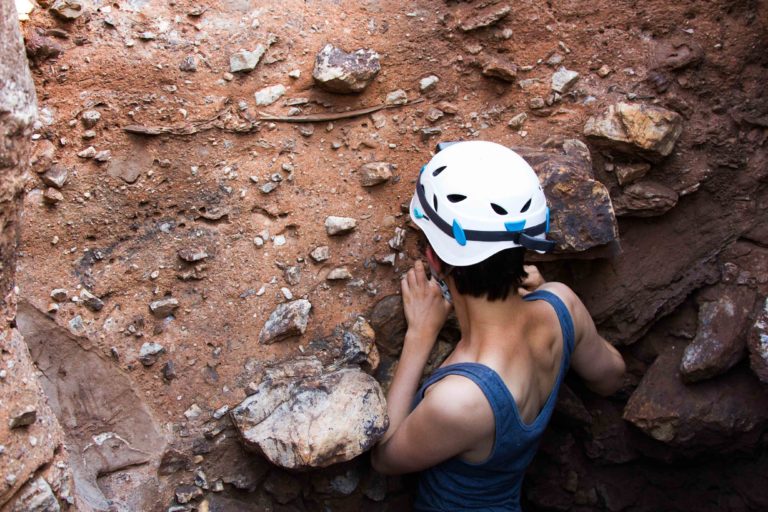An international team of researchers, working from the Drimolen Palaeocave System in Johannesburg, has reconstructed and dated a two-million-year-old fossil, making it the earliest fossil of a human ancestor discovered to date.
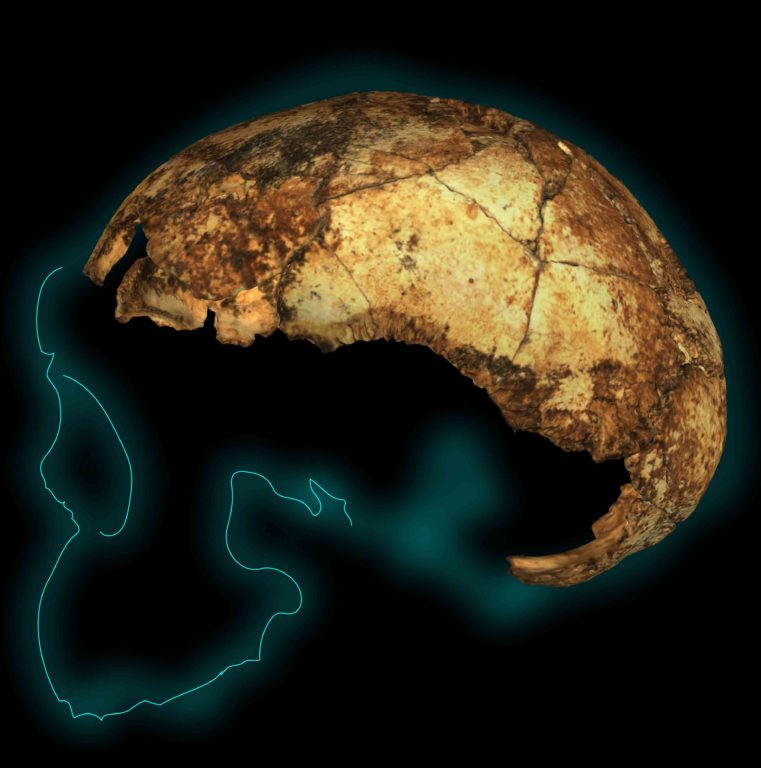
The DNH 134 Homo erectus cranium. Credit: Jesse Martin, Renaud Joannes-Boyau and Andy I. R. Herries.
The team, led by Australian scholars, also included South African researchers from the University of Johannesburg and the University of Cape Town. The team pieced together 150 fragments of a skull belonging to Homo erectus, the earliest known ancestor of modern humans. The skull is said to have belonged to a small child about the age of a toddler. Using a number of scientific dating methods and technology, the age of the skull (named DNH 134) revealed that Homo erectus lived 200,000 to 100,000 years earlier than previously thought.
What’s more is that the research suggests that early Homo erectus could’ve co-existed with two other hominins, namely Australopithecus and Paranthropus, a much older extinct genus. The findings were released today in an article in the journal Science.
‘Not only does the research illustrate the importance of South Africa in the human story, but this project is the first major breakthrough in hominin research with a female, South African director,’ Stephanie Baker, University of Johannesburg PhD student and co-director of the excavation at Drimolen told UCT News.
The Drimolen cave complex in northern Joburg is a fossil-rich site, owing to the discovery of diverse fossils and early tools used by hominids since excavation began there in the 1990s.
For more information, you can read the journal article here.



